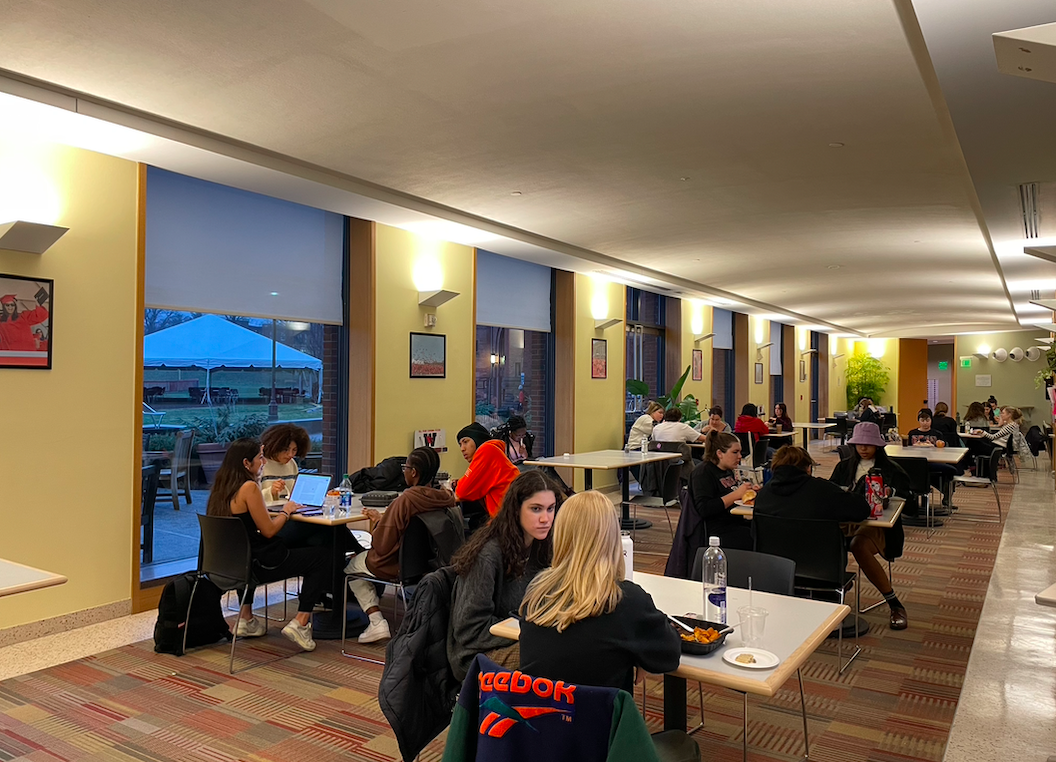
The University announced that it would no longer require students to wear masks indoors and or get tested for COVID-19 in an all-campus email from Associate Vice President and Dean of Students Rick Culliton on Tuesday, March 8. The new policies went into effect as classes resumed after spring break on Monday, March 21.
“Our policies mirror what we are seeing in our communities, our state and the entire country for the most part,” Medical Director Dr. Tom McLarney wrote in an email to The Argus. “What I find reassuring is that communities that do not mandate testing, have relaxed mask mandates and do not have the percentage of their community vaccinated to the degree that the Wesleyan campus does are doing very well.”
In addition to the end of mandatory testing, the University will stop offering PCR tests on campus beginning Monday, March 28. Instead, students with symptoms will be able to pick up rapid antigen tests from Beckham Hall.
“Wesleyan students are very proactive with their health,” McLarney wrote. “Many students will take the initiative to perform a rapid test when they have symptoms and will self isolate until they have the results.”
Although the end of mandatory testing means that the University has less data on the transmission of COVID-19 on campus, McLarney attests that hospitalization and mortality rates are more important measures of COVID-19 at this point.
“With the ready availability of home rapid tests across our country that are not reported to state health departments or the CDC, the metrics of case counting are not as accurate as they had been,” McLarney wrote. “Severity of symptoms [on campus] would be the Pandemic Planning Committee’s focus.”
Along with ending testing requirements, the University is no longer requiring face masks to be worn in indoor spaces. However, professors may choose to require masks in their classes.
“Please continue to carry a mask with you,” Culliton wrote in the all-campus email. “We ask that you be accommodating to those who are more comfortable with everyone masked during meetings.”
Although the requirement is lifted, McLarney emphasized that the University still endorses anyone who continues to wear a mask. However, he stressed that making mask-wearing optional can help the University move to a greater sense of normalcy.
“Davison [Health Center] will still require masking as it is a health care facility,” McLarney wrote. “[Ending the mask mandate on campus] does give one the option as we progress into a more normal pre-pandemic period but at the same time, giving folks the option to continue to wear masks.”
As of Thursday, March 24, there were 38 active student cases and one active employee case on campus. The University will continue to maintain its current isolation policy, which requires students to quarantine for five days after the onset of symptoms. One can be released from isolation on day five if they have a negative antigen test. If the antigen test is positive, they may retest, with isolation ending at 10 days no matter what. The University will also continue its policy of permitting in-person dining.
“We are moving from a state of emergency to a state of watchful concern, much like our concern with seasonal health risks,” Culliton wrote.
Cameron Ryan can be reached at ccryan@wesleyan.edu.
Elias Mansell can be reached at emansell@wesleyan.edu.



Leave a Reply